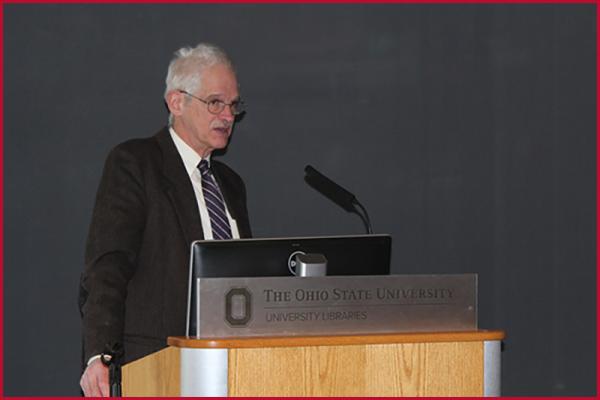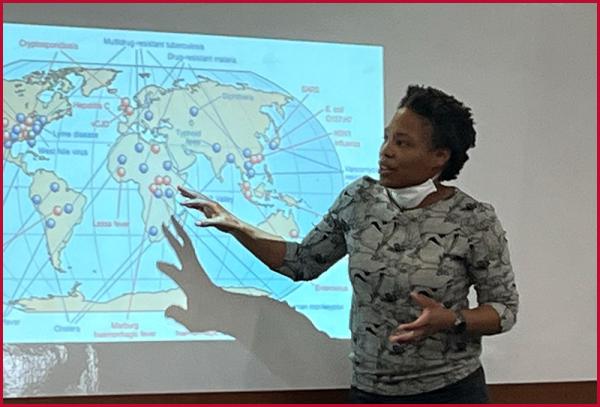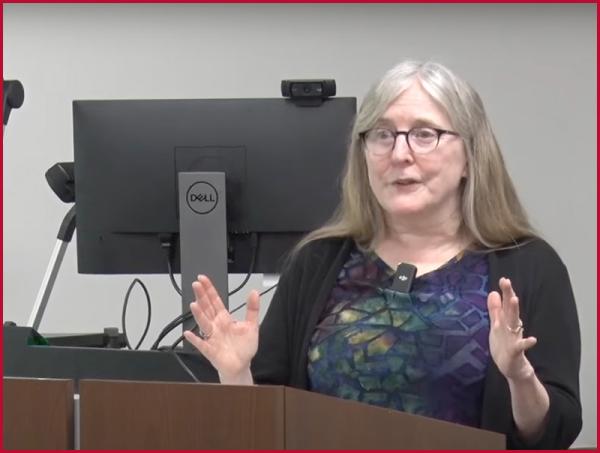THE CENTER FOR HISTORICAL RESEARCH (CHR) has drawn to a close the second and final year of its program entitled “Crisis, Uncertainty, and History: Trajectories and Experiences of Accelerated Change” (2021-2023). John Brooke, former director of the CHR, was the program chair and mastermind behind this series. Inspired first by the challenges and insecurities brought on by the COVID-19 pandemic, exacerbated by election conspiracy theories, the George Floyd protests, the American withdrawal from Afghanistan and the Taliban’s victory there, this interdisciplinary and intellectually stimulating series sought to provide an assessment of these crises within their longer history.

The series began by tackling the crises of pandemic, climate change, and civil rights protests before broadening thematically to include also: the internet age, U.S.-China relations, Russia’s war against the Ukraine, crisis as an everyday experience, geotrauma, and the American elections. Speakers were drawn from a wide variety of disciplines: African and African diaspora studies, Chinese literature and film, classics, comparative studies, cultural anthropology, history, law, and sociology from universities across North America. The focal point was a two-day symposium held in March of 2022 on “Media and Materiality: Category Crisis and Transitional Moments in East Asia and Eastern Europe.” The goal of the conference was to gain a clearer understanding of the lived experience of crisis. Presenters aimed to respond specifically to the changing role and nature of the media upon which we rely to understand crises, while simultaneously having to deal with crises. How do we understand crisis when the very thing that anchors us in specific historical lifeworlds changes at the same moment in which social structures shift? Because of the pandemic, much of the series itself took place online, although the final year of the program transitioned to hybrid. Videos and podcasts from the series can be accessed at go.osu.edu/CHRcrisisvids.

Autumn of 2023 saw the launch of our next two-year program on “Anger in History,” with Bruno Cabanes at the helm as program chair and Sara Butler as new CHR director. Journalists have claimed repeatedly that we are living in an “age of anger.” But what exactly does that mean? This program seeks to answer a number of questions: How does anger contribute to the dynamics of violence in contexts as diverse as riots or revolutions, civil wars, or wars of religion, acts of terrorism, or massacres? How does the struggle for emotional control impact the history of ideas, the history of science and medicine, gender history, of the history of the family, and what does a more global history of anger, not exclusively focused on the Western world, add to our understanding of the complexity of an emotion, both public and private, political, social, and religious? The series opened Tuesday, September 12th, with Jennifer Carlson of the University of Arizona speaking on “Merchants of the Right: Gun Sellers and the Crisis of American Democracy.” Rebecca Traister, writer at large for New York Magazine and New York Times best-selling author of Good and Mad: The Revolutionary Power of Women’s Anger came to speak in spring 2024. All talks are free and open to the public. They are held in person. Information about the series can be found at u.osu.edu/osuchr/anger-in-history/.

Finally, the CHR would like to express its gratitude to John Brooke, who directed the center for many years, but has now embarked on a new adventure: retirement. Brooke has set a high bar for innovative programming and stimulating intellectual exchange that we hope to continue in his absence. ■
Written by Sara Butler, Professor and King George III Chair in British History; Director, Center for Historical Research
